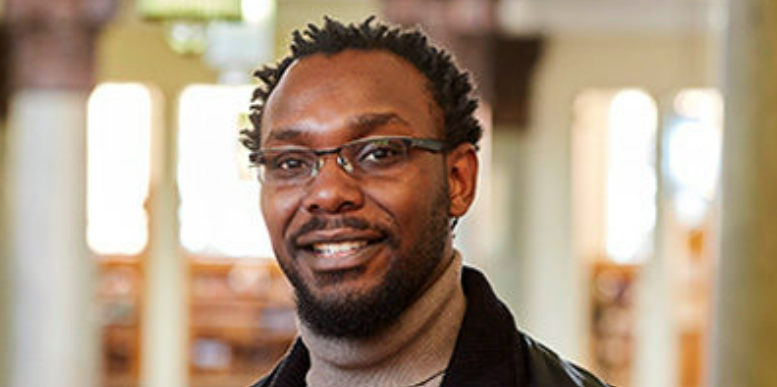Congratulations to Dr Isharaza for passing his PhD viva

LUCAS is delighted to announce that PhD student Ganzi M. Isharaza has passed their Viva and been awarded their PhD with no corrections. We congratulate Dr Isharaza for this fantastic achievement.
Dr Isharaza's thesis is titled: 'Afro-Pessimism Reconsidered: An Analysis of International Non-Governmental Organisations’ Communications in East Africa' and was supervised by Professor Chris Paterson and Dr. Anna Zoeller.
During his studies at Leeds, Dr Isharaza has been an active member of the LUCAS community, participating in research seminars and delivering seminar teaching on the LUCAS modules. Looking back at this period, he said:
Reflecting on my journey thus far, LUCAS has been an integral part of it. From the African Voices programme to the Contemporary and Creative Africas modules, I owe much to the opportunities given to me by the centre generally and to LUCAS Director Professor Adriaan van Klinken specifically. I would like to thank Adriaan and other LUCAS staff for their support during my journey.
Below is an abstract of Dr Isharaza's thesis and further information on his work can be found here.
Over the past thirty years, International Non-Governmental Organisations communication (INGO Communication) has been the subject of contentious debate as regards three major issues. First, its simplistic but emotive narratives and imagery of beneficiaries and the implications of this on their dignity. Secondly, INGO communication’s rapidly growing influence on the media, with particular concern being raised about the blurring of lines between INGO media activism or advocacy and journalistic independence. Third, the collective responsibility that INGOs have for the media image of the Global South, most notably in Africa, where most countries are still dependent on Western aid for a significant portion of their national budget financing, infrastructure and service delivery. Media and development researchers have severally argued that INGOs’ communication practices contribute to an essentialisation of the continent, also known as Afro-pessimism. Most, however, have tended to conceptualise INGOs as homogenous global entities and study their interaction with the media from the position of journalism studies rather than that of the INGOs themselves.
Using participant observation, interviews and my professional experience, this research seeks to achieve three objectives. First, to provide better understanding of INGOs’ global governance and management structure. This allows for a more nuanced understanding of their communication processes and practices especially from the perspective of employees based in the Global South who are the primary sources of INGOs’ visual images and narratives on Africa. Secondly, I draw attention to the unique ways in which INGOs interchangeably employ journalistic values and promotional styles to their communication efforts in order to achieve their advocacy and promotional goals. This approach makes it possible to go beyond the binary judgement of INGO communication to instead understand how and why these organisations communicate the way they do. Lastly, I demonstrate the ways in which INGO employees based in East Africa justify or attempt to challenge Afro-Pessimism in INGO communications and explain why this matters. Because these communications workers are frontline narrators of the development project, I argue that what they do and how they do it are key components of INGO communication that require serious scholarly attention.
